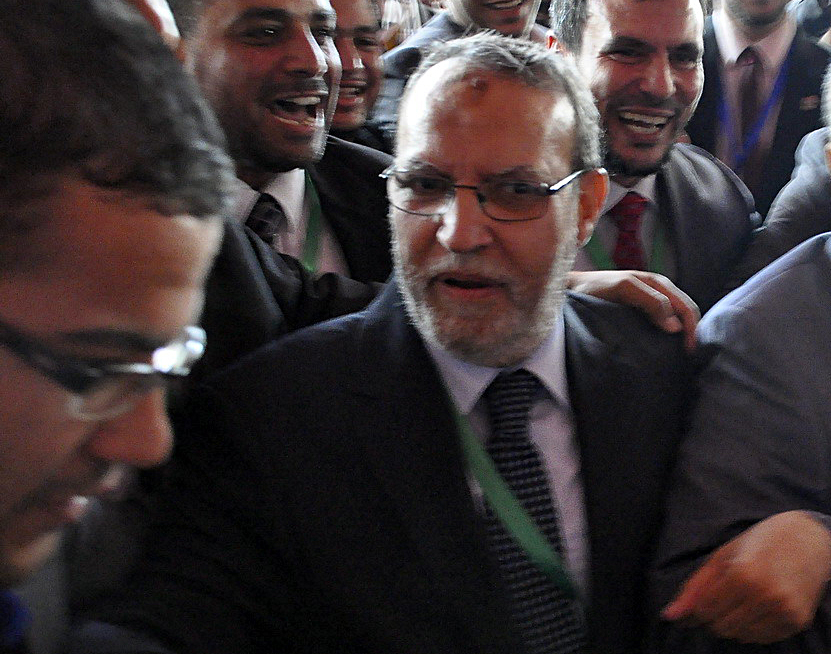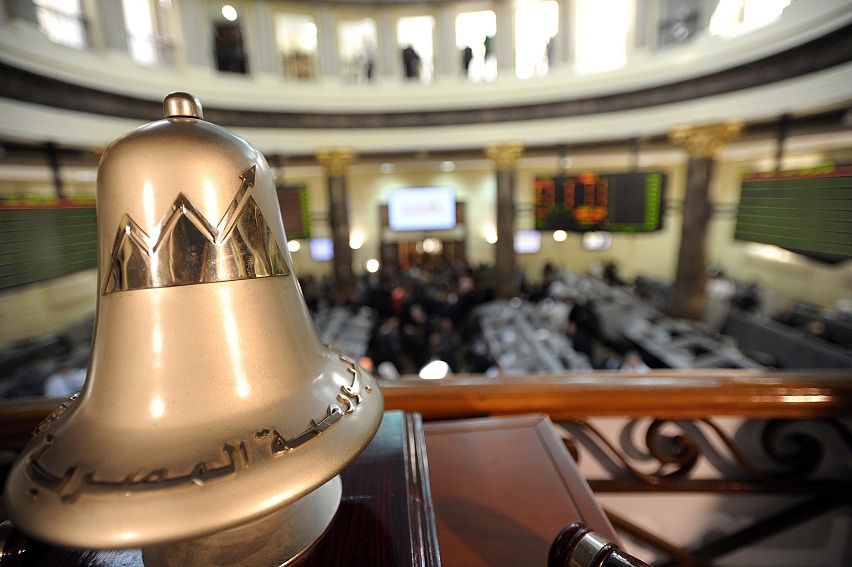There are currently 15 Arab banks working in the Egyptian market, including banks that have worked here for over 10 years, in addition to banks that have only recently entered Egypt.
Given the ever fluctuating state of Egypt’s economy, particularly in light of the Central Bank of Egypt’s recent decision to float the Egyptian pound and its affect on the exchange rate, it is important to delve into the vision of these banks and their leaders.
“We are confident in Egypt’s future and its importance in the world. We understand the importance of our presence in Egypt and we will continue to expand all over the republic,” said Mohamed Ozalp, CEO of Blom Bank Egypt.
Ozalp stressed that Blom Bank’s expansion policy in the Egyptian market has not changed over the past few years, as the parent company considers the Egyptian market its most important in the Middle East.
As proof of this belief, Blom has not transferred any profits abroad since entering into the Egyptian market. Rather, it has allocated the profits to support the bank’s financial centre so as to increase its ability to expand, until the capital reached EGP 1.25bn.
“The bank plays a prominent role in financing all economic sectors, especially energy, construction, industry, food, agriculture, and small- and medium-sized enterprises (SMEs), based on the feasibility of the project and its importance to the state. Moreover, we pay attention to the social responsibility implied in serving Egyptian society,” Ozalp said.
He stated that Egypt has all the necessary potential that will allow it to overcome its current economic obstacles.
“We have great potential, whether in tourism, industry, agriculture, energy, and mineral wealth, in addition to our geographical location. Egypt is located at the centre of the world, between the red and the Mediterranean seas and three continents. This makes trade an easy process to and from Egypt,” Ozalp added.
Egypt has signed free trade agreements with most of the global economic blocs, like Mercosur, the European Union, and COMESA, which is expected to expand to include Africa, in addition to agreements with Russia, Turkey, and a number of Asian countries.

DNE Photo
Mohamed Nasr Abdeen, deputy chairperson of the Union National Bank (UNB) Egypt, believes that Egypt’s economy is taking important, necessary steps under very difficult circumstances.
“Egypt has made great leaps in its current situation, whether in terms of the economic reform programme, or the large projects the government seeks to implement and the restoration of Egypt’s position in the Arab, African and international regions,” Abdeen said.
Abdeen added that through looking at reports of international institutions, it is easy to see that several indexes emphasise that Egypt’s economy has achieved great advances over the past period.
The UNB is considered one of the largest Emirati banks working in the Egyptian market. It obtained the Bank of Alexandria in 2006 in a deal worth EGP 244.5m.
According to Abdeen, the parent group is planning to implement an ambitious strategy to expand in the Egyptian market in all sectors, including joint loans, SMEs, and individual funding through increasing its geographical spread and developing IT systems to increase the market share in Egypt to 5% within the next 10 years.
Abdeen added that the group is supporting Egypt’s current economic trend and contributes to building an integrated economy and a patriotic capital through financing the private sector and expanding the customer base. The group also plays a vital role in supporting Emirati companies that will take part in the implementation of national projects, in addition to making preparations to provide the financing or letters of guarantee for Emirati companies that seek to invest in Egypt in order to encourage them to make that move.

Sahar El Damati, deputy managing director of Emirates NBD and chief risk officer, said that Egypt is a large market with great growth opportunities. It is also one of the best markets in the Middle East.
Despite the large challenges facing Egypt’s economy, this recent period has witnessed many positive aspects that represent a strong basis for any future investments, according to El Damati.
“For the first time, the state is implementing real economic reforms using global standards, making Egypt a strong country economically, politically, and socially. The reforms include the exchange rate system: this step was taken through the flotation of the pound in addition to restructuring the state’s budget and decreasing subsidisation to direct it towards the right beneficiaries, in addition to the Value-Added Tax (VAT) Law,” El Damati said.
She noted that the past period has also witnessed many preparations by the state to attract foreign investments and encourage local investors to expand. This is supported by the establishment of the Supreme Council for Investment, which has recently made major decisions that will have a great impact on the flow of foreign investments to Egypt.
According to El Damati, the government has an interest in building a strong infrastructure in various governorates, including projects for roads, bridges, energy, sewage, in addition to many other projects.
Moreover, the past period has witnessed the launch of several national projects, like the New Administrative Capital, the 1.5m-acre reclamation project, the Suez Canal Economic Zone (SCZone), in addition to many other projects that create large funding opportunities.
“The government was keen on providing energy to factories to help them expand as well as diversify energy resources rather than depending on one type of energy. Now we have coal, petroleum, gas, as well as new and renewable energy sources. We are working hard to produce nuclear energy as well,” El Damati said.
She stressed that all these serious steps taken by the government are considered a foundation for improving the investment climate.
“Emirates NBD entering the Egyptian market in the second quarter of 2013, after its acquisition of BNP Paribas, came at a time when Egypt was going through difficult circumstances, which proves the bank’s confidence in Egypt’s economy and its ability to grow, in addition to its confidence in the Egyptian banking sector,” El Damati.
The parent bank in the UAE believes that there are great growth opportunities in the Egyptian market and an expected increase in investments, which will certainly have an impact on the bank’s businesses and activities.
“The bank provides funding to about 25 sectors in the Egyptian market, most prominently new and renewable energy, electricity, petroleum, communications, contracting, steel, cement, and food,” El Damati added.
The bank is also focusing on other major projects. It aims to fund several SMEs.
“The bank has provided funding worth EGP 2bn to the Egyptian Electricity Holding Company. It is the largest loan the bank has provided to a single sector, and is considered one of the largest loans in the Egyptian market. Previously, the bank also provided a $100m loan to the General Authority of the Suez Canal Economic Zone, which shows the bank’s keenness on supporting and funding major Egyptian projects, whatever sector they belong to,” El Damati added.




